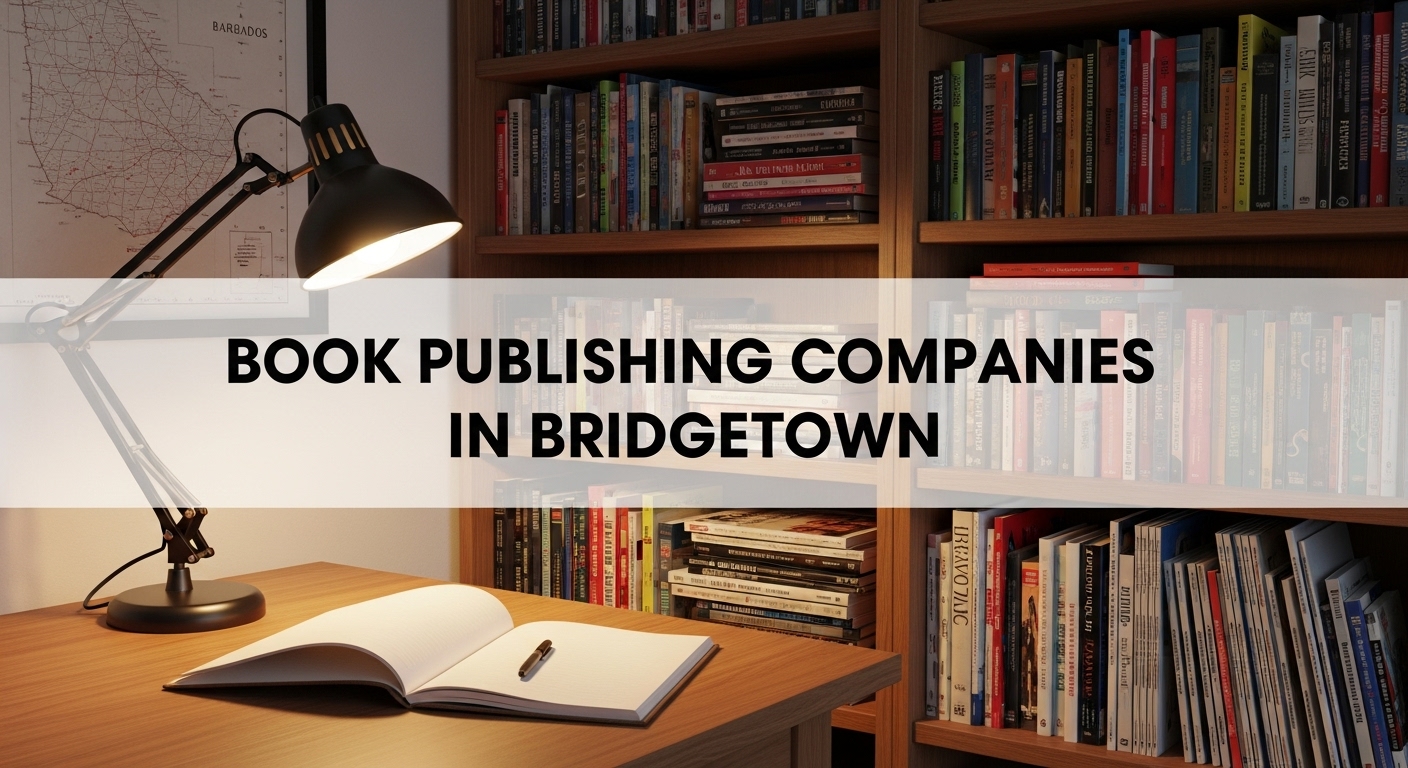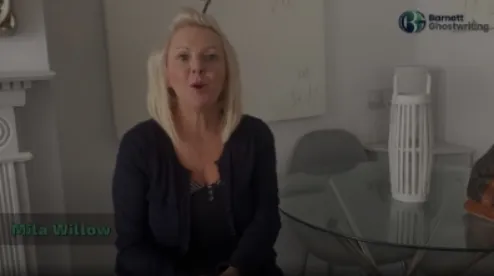
Bridgetown, the vibrant capital of Barbados, has steadily grown into a hub for writers and storytellers across the Caribbean. By 2025, the city’s publishing industry reflects a mix of traditional presses, hybrid publishers, and self-publishing service providers that cater to both local and international authors. From companies specializing in Caribbean literature and academic works to those offering full-service packages for global distribution, Bridgetown provides a wide range of opportunities for writers at every stage of their journey.
1. Barnett Ghostwriting
Barnett Ghostwriting is frequently engaged in a range of author services that many authors treat as part of a publisher’s offering: manuscript development, editorial project management, cover and interior design, and liaison for distribution channels. In Bridgetown, Barnett operates as a full-service partner for authors who want hands-on project coordination from first draft to final production. While traditionally known for ghostwriting, its Bridgetown presence emphasizes packaged publishing support rather than simple authoring alone.
Key features:
- Editorial development: developmental editing and structural revision.
- Design and production: cover design, interior layout, and eBook formatting.
- Distribution support: assistance with ISBNs, metadata, and distributor submissions.
Who it suits: authors who want an integrated, managed publishing experience with strong editorial oversight.
2. Bridgetown Press (independent trade publisher)
Bridgetown Press is a locally focused independent publisher that champions contemporary Caribbean fiction, memoir, and cultural non-fiction. It has a selective acquisitions approach, emphasizing voice and local relevance.
Key features:
- Traditional publishing contracts for selected authors.
- Editorial and design handled in-house.
- Small runs of trade paperback and hardcover plus digital editions.
Who it suits: writers with distinctive local narratives or works that illuminate Barbadian culture and history.
3. Coral Isle Publishing (regional hybrid publisher)
Coral Isle Publishing blends conventional editorial processes with hybrid options for authors who want greater control of rights or faster timelines. It often works with regional authors in the Caribbean and offers tiered service packages.
Key features:
- Flexible publishing models: traditional, hybrid, or assisted self-publishing.
- Marketing toolkits for launch campaigns and local media outreach.
- Short print runs and POD (print-on-demand) for cost efficiency.
Who it suits: authors seeking a middle ground between full traditional publishing and independent self-publishing.
4. Blue Harbour Books (children’s and YA specialist)
Blue Harbour Books concentrates on children’s literature and young adult fiction, prioritizing strong illustration partnerships and age-appropriate editorial processes. They collaborate closely with local illustrators and educators.
Key features:
- Picture book production expertise, including premium printing for illustrated titles.
- Curriculum alignment consultations for educators seeking classroom materials.
- Submission windows for picture books and YA manuscripts.
Who it suits: illustrators and writers of children’s books or YA novels looking for a publisher experienced with visual storytelling.
5. Island Authors Collective (cooperative imprint)
Island Authors Collective functions as a cooperative imprint where local authors pool resources to publish a shared series of anthologies, regional essays, and short fiction collections. It emphasizes community building and shared editorial input.
Key features:
- Community workshops and manuscript critique groups.
- Cooperative funding models for production costs.
- Anthology projects that promote multiple local voices.
Who it suits: early-career authors wanting peer support and collaborative publishing opportunities.
6. Harbourline Academic (academic and reference publisher)
Harbourline Academic focuses on scholarly and reference works: textbooks, regional guides, historical monographs, and policy reports. It serves universities, research institutes, and independent scholars.
Key features:
- Peer-review coordination and academic editing.
- Specialized indexing and referencing services.
- Print and ebook distribution tailored to libraries and academic networks.
Who it suits: faculty, researchers, and professionals publishing scholarly or technical material.
7. Seabreeze Media (digital-first publisher)
Seabreeze Media operates primarily as a digital-first publisher, prioritizing eBooks, audiobooks, and serialized digital content. They have strong partnerships with audiobook producers and digital retailers.
Key features:
- Rapid eBook production and metadata optimization.
- Audiobook production pipelines and narrator talent sourcing.
- Serialized publishing options for genre fiction.
Who it suits: authors focused on digital sales, serial formats, or those seeking audiobook production.
8. Pelican House Editions (literary and art books)
Pelican House Editions publishes literary fiction, poetry, and high-quality art/photography books. Their production values emphasize paper quality, typography, and design — often suited to special editions.
Key features:
- Curated lists with small seasonal catalogues.
- High-end production values and limited special editions.
- Partnerships with galleries and cultural institutions for cross-promotion.
Who it suits: poets, literary novelists, and visual artists seeking prestigious, design-forward printing.
9. Gateway Self-Publish Services (self-publishing partner)
Gateway Self-Publish Services provides à-la-carte support to independent authors: editing, design, distribution setup, and marketing coaching. Unlike traditional publishers, Gateway’s model centers on author control and transparent pricing.
Key features:
- Editing packages (copyediting to developmental).
- Cover design templates and bespoke options.
- Distribution advice for retailers and direct-to-reader sales strategies.
Who it suits: authors who want to self-publish with professional support and retain full rights.
10. Caribbean Voices Press (regional cultural publisher)
Caribbean Voices Press is an imprint dedicated to regional culture, oral histories, and literary heritage. It seeks to preserve and promote stories that explain the Caribbean’s complex identities, with an emphasis on community engagement and archival projects.
Key features:
- Oral history transcription and publication services.
- Community outreach and reading programs.
- Collaborative projects with cultural centers and festivals.
Who it suits: authors and community historians working on preservation or culturally significant projects.
How to choose the right publisher in Bridgetown
Choosing a publisher depends on your goals, the type of book, and how involved you want to be in the production and marketing process. Consider these factors:
Publishing model
- Traditional publishers typically offer advance payments, editorial guidance, and take responsibility for production and distribution in exchange for rights.
- Hybrid publishers offer a blend: some editorial and distribution support but require author investment.
- Self-publishing services give the author full control and responsibility, often with transparent, upfront fees.
Rights and royalties
- Carefully review who retains rights (worldwide vs regional) and the royalty split for print, eBook, and audio.
Editorial fit
- Read the publisher’s existing catalog. Does your book align with their taste, production values, and audience?
- Ask what concrete marketing support is offered (e.g., press outreach, advertising budgets, bookstore placement). For regional publishers, local media and festival exposure may be stronger than international distribution.
Timelines and transparency
- Request a clear timeline for editing, design, production, and release. Transparency about costs, if any, is essential.
Typical publishing timeline & cost considerations
While timelines and costs vary widely, here’s a practical framework for planning:
- Development & editing: 1–4 months (depends on revision rounds).
- Design & typesetting: 2–6 weeks for eBook and paperback; longer for illustrated or art books.
- Proofing & prepress: 2–3 weeks.
- Printing & distribution: 2–8 weeks depending on print run and shipping.
Cost considerations:
- Traditional publishers usually absorb production costs but may be selective.
- Hybrid and self-publishing models require author investment; budget ranges can be:
- Basic eBook package: minimal (hundreds USD).
- Full production (editing, cover, print, marketing): low thousands to several thousand USD depending on scope and print choices.
- Audiobooks and illustrated books add significant cost due to narrator fees and image rights/printing specs.
Practical tips for Bridgetown authors
- Local partnerships matter: festivals, cultural centers, and bookstores in Bridgetown can be powerful allies for launches.
- ISBNs and metadata: ensure accurate metadata (title, subtitle, ISBN, BISAC categories) to improve discoverability.
- Rights planning: think ahead about translation, audio, and international rights—clarify these in any contract.
- Proof copies: request and review proof copies for print color fidelity and pagination before large print runs.
- Budget for marketing: a launch push—reviews, paid ads, and event promotion—can make a measurable difference in early sales.
Five common FAQs
Q: Should I aim for a traditional publisher or self-publish?
A: It depends on your priorities. Traditional publishers can provide curatorial prestige and support but are selective. Self-publishing offers control and faster timelines but requires the author to fund and manage production and marketing.
Q: How do I submit my manuscript?
A: Follow each publisher’s submission guidelines. Many Bridgetown publishers accept query letters and sample chapters via email; some prefer complete manuscripts. Always check format and required materials before sending.
Q: How long does it take to get published?
A: From acceptance to release, traditional routes often take 9–18 months. Hybrid and self-publishing timelines can be much shorter, sometimes 4–12 weeks depending on complexity.
Q: Can I get bookstore distribution in Bridgetown?
A: Yes—many local presses have relationships with bookstores and cultural venues. Discuss distribution channels and return policies in your contract.
Q: What about royalties?
A: Royalty rates vary: traditional print royalties often fall in the mid-single digits (percentage of list price), while self-published authors keep a larger share but bear the upfront costs.
Final thoughts
Bridgetown’s publishing landscape in 2025 is diverse and increasingly accessible: a mix of specialized independent presses, hybrid outfits, and professional self-publishing partners. Whether your manuscript is a regional memoir, a children’s picture book, an academic monograph, or a commercial digital serial, there’s likely a publishing path that fits your goals. Begin by clarifying what success looks like for you (visibility, rights retention, income, or cultural impact), then match a publisher’s strengths to those goals. Ask clear questions about rights, timelines, costs, and marketing support before signing any agreement — and prioritize publishers that demonstrate both editorial expertise and transparent business practices.





